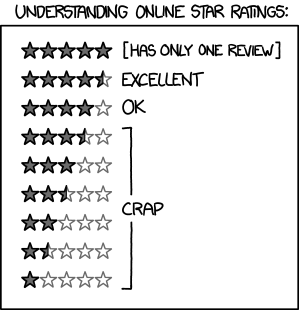Sourced Quotes, 15
If you want to build a ship, don’t drum up people together to collect wood and don’t assign them tasks and work, but rather teach them to long for the endless immensity of the sea. – Antoine de Saint-Exupéry, a very loose English paraphrase of his French poem Dessine-moi un bateau, or Make Me a Boat, found in Citadelle, 1948.
You say, “Why should I learn these difficult technical skills when it’s all just gonna change? Let me know when it’s settled down.” Problem is, by the time you catch on that it’s *never* gonna settle down, you’re five years behind, with no real way to catch up, and you feel like a one-person Soviet Union. — Stewart Brand, on the WELL, about 1991
The ultraintelligent machine … is a machine that believes people cannot think. — Jack Goode, in George Dyson, Turing’s Cathedral, 2012, p. 262
A history of the entertainment business could be framed as a series of experts asking, “Who the hell wants to watch that?” When the answer is “more people than you think,” the definition of profitable entertainment changes. — Rob Walker
On You Tube, Amateur Is the New Pro, New York Times, June 28, 2012
Cell phones are tracking devices that make phone calls.
— Jacob Appelbaum, n+1, April 26, 2012
If you are able-bodied and you see a person in front of you walk into the path of an oncoming car, you have a responsibility to pull that person to safety. But, in a world in which we can know what is happening everywhere all the time, what responsibility will we feel – or be burdened with? — Esyher Dyson, Technology’s Mental Frontier, Aug 21, 2012
Demographic curves are very hard to bend. — Jonathan Haidt, He Knows Why We Fight, Wall Street Journal, June 29, 2012
You see, a wire telegraph is a kind of very, very long cat. You pull his tail in New York and his head is meowing in Los Angeles. Do you understand? Radio operates in exactly the same way. The only difference is that there is no cat. — Old joke, starting in 1866 (!), Quote Investigator, February 24, 2012
The young, multibillionaire technologist is left with only two avocations: space travel and the engineering of immortality. Both are about escaping the gravity of the situation. — Nick Carr, Rough Type, Farmville, May 8, 2012
Some quite natural events — hurricanes, earthquakes, tsunamis, derechos — have such unimaginable power that the destruction they wreak will always take days, or weeks, or months to fix. No society can afford to harden the infrastructure that supports it to make that infrastructure immune to such destructive forces.
(Sometimes it makes more sense to spend money on mitigation than it does to spend it on prevention.) — Randy Baum, C&EN, July 16, 2012
Parkinson’s Law of Triviality states that, “the time spent on any item of the agenda will be in inverse proportion to the sum involved.” In other words, if you try to build a simple thing such as a public bike shed, there will be endless town hall discussions wherein people argue over trivial details such as the color of the door. But if you want to build a nuclear power plant – a project so vast and complicated that most people can’t understand it – people will defer to expert opinion. — C. Northcote Parkinson, 1957, Parkinson’s Law.
A fact is a simple statement that everyone believes. It is innocent, unless found guilty. A hypothesis is a novel suggestion that no one wants to believe. It is guilty, until found effective. — Edward Teller, Conversations on the Dark Secrets of Physics, 1991, p. 69 footnote.
The “uncanny valley” is a term coined by roboticist Masahiro Mori to describe the revulsion people experience when seeing robots that look and act almost, but not exactly, like humans. Badly targeted Internet ads provoke the same feeling. They’re dumber than any human salesperson, and they’re just smart enough to make you queasy. — Farhad Manjoo, The Uncanny Valley of Internet Advertising, Slate, August 23, 2012
 Chart from XKCD, 2012
Chart from XKCD, 2012


